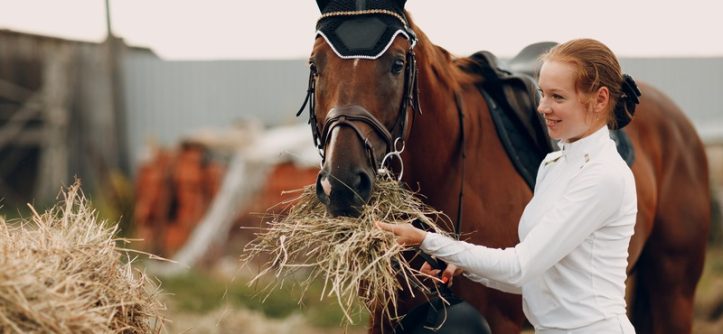As a horse owner, you’re a caretaker, trainer, and sometimes nurse, with a key focus on your horse’s health. Vaccination is crucial to prevent serious diseases. With many vaccines available, it’s vital to know which ones to prioritize. This guide will detail essential vaccines, their importance, and how they fit into routine healthcare. Keeping our trotting companions healthy and happy is our ultimate goal.
Essential Vaccines for Horses
Without further ado, let’s dive into the list of core vaccines that are crucial for horses. These are the ones our furry friends shouldn’t go without:
1. Rabies
Rabies is deadly, and there’s no cure once symptoms appear, which is why the rabies vaccine is non-negotiable for horses. It’s transmitted through the bite of an infected animal, and horses are just as susceptible as any other mammal. One jab a year is usually sufficient to keep this lethal virus at bay.
2. Tetanus
Often found in soil, tetanus is caused by a bacterium that enters the body through wounds or cuts. Symptoms include muscle stiffness and lockjaw, which can be fatal. A yearly shot can protect your horse, with booster shots given if they suffer an injury.
3. Eastern and Western Equine Encephalomyelitis (EEE/WEE)
The culprits for these diseases are mosquitoes, therefore, places with high mosquito populations pose a higher risk. EEE and WEE lead to neurological issues and are often fatal. Vaccinations for these should be administered annually, with considerations for more frequent dosing in areas with year-round mosquito activity.
4. West Nile Virus
Also, mosquito-borne West Nile Virus can cause a range of symptoms in horses, from mild fever to severe neurological conditions. Like EEE and WEE, this vaccine should be a part of your annual regimen, especially since there’s no specific treatment for the infection.
Additional Vaccines to Consider
Now, those are the essentials, but we have a few more vaccines that, while not crucial for every horse, might be right for your equine pal depending on their lifestyle and the region they live in:
5. Equine Influenza
This respiratory illness is like the flu in humans: highly contagious and not fun at all. Horses that travel frequently or live in boarding facilities should especially consider this vaccine. Typically, it’s given every six months to provide continued immunity.
6. Rhinopneumonitis (Equine Herpesvirus)
Caused by the equine herpes virus, this disease can lead to respiratory issues, abortions in pregnant mares, and even neurological disorders. A vaccination routine depends on your horse’s exposure risk and lifestyle—your equine vet can offer tailored advice on this.
7. Strangles
Strangles is a highly infectious disease that causes lymph node swelling and potentially abscesses. Young horses and those in high-contact environments might need this vaccine. It’s not part of the essential lineup but may be worth discussing with your vet based on your horse’s situation.
By the way, while we’re discussing our trusted partners in horse health care, it’s important to mention that meanwhile, these vets offer horse, dog and cat surgery for a wide range of conditions, ensuring that not just our equine buddies but also our smaller furry family members stay in good health.
Making Informed Decisions
When making informed decisions about your horse’s healthcare, it is crucial to consider a wide range of preventive measures. Vaccinations are just one aspect of a comprehensive health plan. For example, taking cues from best practices in small animal care — such as those found for cats and dogs at veterinary websites like https://www.reelfootanimalhospital.com/site/veterinary-services-union-city/cat-dog-vaccinations-parasite-prevention can inform proactive approaches to parasite prevention and other health issues in horses. While equine care is unique, understanding the principles of disease prevention across various species can be beneficial. Always discuss these topics with your vet to create a tailored health regimen for your horse.
A Consideration for Your Horse’s Health Plan
Here are some steps you can discuss with your vet when planning your horse’s health care routine:
-
Annual physical examination
-
Vaccination schedule based on regional risks and lifestyle
-
Deworming protocol
-
Dental care
-
Nutrition and weight management
-
Hoof care
This approach ensures that vaccines are part of a comprehensive health management plan tailored specifically to your horse.
Keep detailed records of your horse’s vaccinations, essential for travel, boarding, and outbreaks. Set reminders for vaccination dates to ensure timely protection. Horses are unique companions, providing companionship, sport, and therapeutic value. To safeguard their well-being, vaccinate them regularly, allowing them to lead healthy, worry-free lives.
Final Thoughts
A proactive approach to horse vaccinations, guided by expert advice and awareness of health risks, ensures optimal horse health. Consult your equine vet for the best vaccine plan to create a safe and thriving environment for all horses. Prioritizing vaccinations protects our horses, allowing us to enjoy their company and devotion. Here’s to the health and happiness of our horses.




